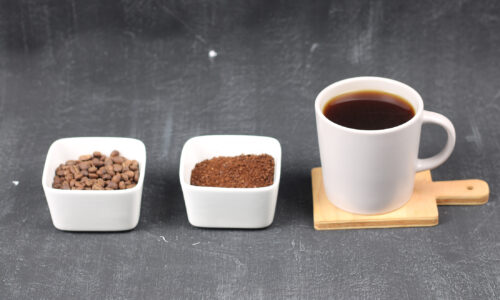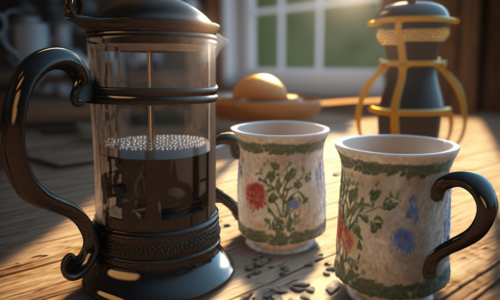Discover the truth about decaf coffee and its caffeine content. Learn about the decaffeination process, health benefits, and tips for choosing the best decaf coffee.
The Allure of Decaf Coffee
We’ve all been there – you love the taste of coffee, but you don’t want the caffeine that comes with it. Decaf coffee seems like the perfect solution, right? But is it really caffeine-free? In this article, we will explore the truth behind decaf coffee, how it’s made, and whether it truly offers a caffeine-free alternative. So, grab a cup of coffee (decaf or regular) and let’s dive in!
What is Decaf Coffee?
Defining Decaf
Decaf coffee, short for decaffeinated coffee, is coffee that has had most of its caffeine content removed. It’s an attractive option for those who are sensitive to caffeine or want to reduce their caffeine intake for health reasons.
The Decaffeination Process
There are several methods of decaffeination, including:
- Swiss Water Process: This method uses water and activated charcoal to remove caffeine from the beans. It is considered one of the most natural and chemical-free processes.
- Direct Solvent Process: In this method, coffee beans are soaked in a solvent (usually methylene chloride or ethyl acetate) to remove caffeine. The solvent is then evaporated, leaving decaffeinated beans.
- Indirect Solvent Process: Coffee beans are first soaked in water to dissolve the caffeine, and then the water is treated with a solvent to remove the caffeine. The water is then returned to the beans to reabsorb the flavor compounds.
How Much Caffeine is Left in Decaf Coffee?
A Closer Look at Caffeine Content
While decaf coffee does have a significantly lower caffeine content than regular coffee, it is not completely caffeine-free. The amount of caffeine left in decaf coffee varies depending on the decaffeination process and the type of bean used.
Comparing Caffeine Levels
To give you an idea, an 8-ounce cup of regular coffee can contain anywhere from 80 to 100 milligrams of caffeine, while an 8-ounce cup of decaf coffee typically contains around 2 to 5 milligrams. That means decaf coffee still has about 2-5% of the original caffeine content.
Health Benefits and Concerns of Decaf Coffee
Pros of Decaf Coffee
- Reduced Anxiety: Lower caffeine intake can help reduce anxiety and jitteriness in caffeine-sensitive individuals.
- Improved Sleep: Drinking decaf coffee can help improve sleep quality, especially for those who are sensitive to caffeine.
- Antioxidants: Decaf coffee still contains antioxidants that may provide health benefits, such as reducing inflammation and preventing certain diseases.
Cons of Decaf Coffee
- Chemical Residue: Some decaffeination processes use chemicals that may leave residues on the beans. Opting for a natural decaffeination method can help avoid this concern.
- Lower Flavor Profile: Decaf coffee may have a slightly different flavor than regular coffee, as some flavor compounds may be lost during the decaffeination process.
Tips for Choosing the Best Decaf Coffee
- Opt for a Natural Process: Choose decaf coffee made using the Swiss Water Process or other chemical-free methods.
- Look for Freshly Roasted Beans: Freshly roasted beans will have a richer and more robust flavor.
- Buy Specialty Coffee: High-quality specialty coffee beans will result in a better-tasting decaf coffee.
Decaf Coffee – A Near Caffeine-Free Alternative
In summary, while decaf coffee is not 100% caffeine-free, it provides a near-caffeine-free alternative for those who want to enjoy the taste of coffee without the stimulating effects of caffeine. By opting for a natural decaffeination process and high-quality beans, you can still indulge in a flavorful cup of coffee without worrying about the caffeine content. So, go ahead and enjoy that cup of decaf – just remember, it’s not entirely caffeine-free, but it’s close enough for most!
FAQs
1. Is there any caffeine in decaf coffee?
Yes, there is still a small amount of caffeine in decaf coffee. An 8-ounce cup of decaf coffee typically contains around 2 to 5 milligrams of caffeine, compared to 80 to 100 milligrams in regular coffee.
2. How is decaf coffee made?
Decaf coffee is made by removing most of the caffeine from coffee beans. There are several methods of decaffeination, including the Swiss Water Process, Direct Solvent Process, and Indirect Solvent Process.
3. Are there any health benefits to drinking decaf coffee?
Decaf coffee still contains antioxidants that can provide health benefits, such as reducing inflammation and preventing certain diseases. Additionally, it can help reduce anxiety and improve sleep for those who are sensitive to caffeine.
4. Does decaf coffee taste different from regular coffee?
Decaf coffee may have a slightly different flavor than regular coffee, as some flavor compounds may be lost during the decaffeination process. However, choosing high-quality beans and a natural decaffeination process can help minimize the difference.
5. Is it safe to drink decaf coffee if I’m sensitive to caffeine?
For most people with caffeine sensitivity, decaf coffee should be a safe alternative. However, it’s important to note that decaf coffee is not entirely caffeine-free, so if you’re extremely sensitive to caffeine, it’s best to consult with your healthcare provider.




Many people believe that decaf coffee is completely caffeine-free, but in reality, it still contains a small amount of caffeine. The process of removing caffeine from coffee beans is not 100% effective, so decaf coffee can still have anywhere from 1-5% of the original caffeine content. So, if you are sensitive to caffeine, it’s best to stick to herbal tea or other caffeine-free alternatives.
As someone who’s tried to cut down on caffeine, I can tell you that decaf coffee still has a small amount of caffeine. It’s not enough to give you the jitters, but it’s there. So if you’re completely avoiding caffeine, decaf might not be the best option.